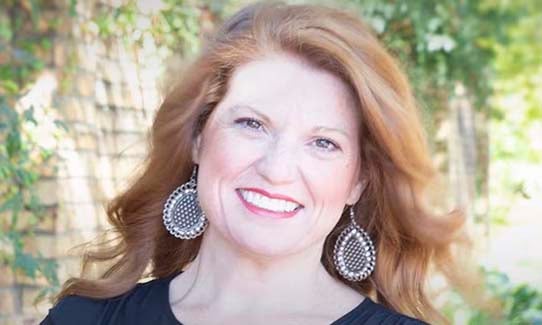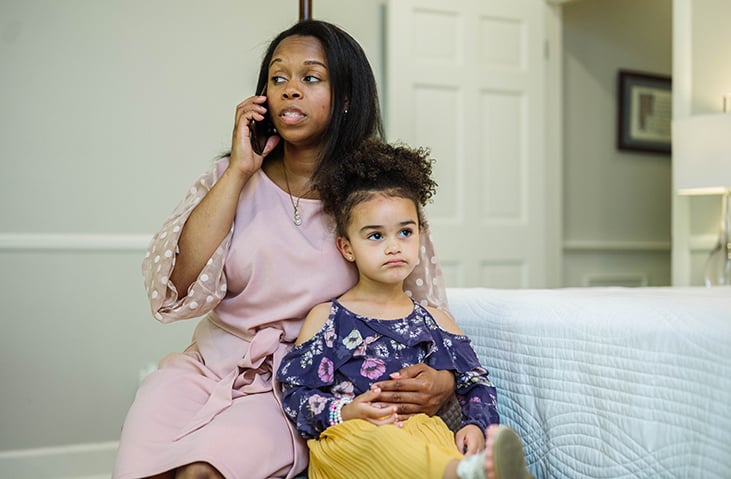

Apr 25 2024
Ignorance is Not Always Bliss


Summary
Heather Wilf worried about heart symptoms for two years before putting her mind at ease with a heart screening and follow-up procedures.
Sometimes, what you don’t know can, indeed, hurt you.
Such was the case for Heather Wilf of Amory.
As a cardiology nurse for many years, Heather knows the perils of heart disease. In addition to her professional experience with heart patients, her father underwent open heart surgery when he was in his 50s. So, when Heather began experiencing occasional heart palpitations a few years ago, she became concerned.
During that time, she lost her father and a close cousin, which only compounded her anxiety. She fretted over her symptoms for quite a while—imagining the very worst—before finally taking action. “It happened again one night while I was lying in bed,” she says, “and I decided I needed to have it checked out.”
When she turned 40, Heather had done a heart risk screening at Cardiology Associates of North Mississippi. The screening includes:
- Coronary calcium scan, a simple CT scan that looks for specks of calcium in the walls of the heart arteries. This indicates early heart disease and can show whether someone is at risk of heart attack before other signs and symptoms occur.
- EKG (electrocardiogram) to measure the heart’s electrical activity. By measuring intervals on the EKG, a cardiologist can determine if the heartbeat is too fast, too slow, normal or irregular. And by measuring the amount of electrical activity passing through the heart muscle, the cardiologist can determine if parts of the heart might be too large, overworked or scarred.
- Lipid profile to measure levels of high density lipoprotein (HDL or so-called "good cholesterol"), low density lipoprotein (LDL or "bad cholesterol") and triglycerides (sugar and fatty acids)
“That screening showed that plaque had already started building up in my arteries,” she says. “My doctor put me on cholesterol medication, and it helped.”
This February, at age 47, Heather scheduled a follow-up heart risk screening to check on the heart palpitations. Her score increased from 15 to 86—not alarming but significant. “Of course, I panicked,” Heather says.
Her doctor ordered a coronary CT scan to get a more detailed look of her heart, as well as an echocardiogram. Because there was still some concern, he scheduled Heather for cardiac catheterization the next morning.
Cardiac catheterization (or heart cath) is a procedure that examines how well your heart is working and identifies problems. An interventional cardiologist takes X-rays using contrast dye injected through a catheter to look for narrowed or blocked coronary arteries, as well as looks for defects in the heart valves and chambers.
“Even though I preached it for years to other people, when I walked in the hospital for my own procedure, my heart was racing. The person working the desk could tell that I was upset,” Heather says. “She calmed me and told me, ‘It’s going to be OK.’ She was thoughtful enough to say the right things. And the Cath Lab team was so caring – they knew I felt vulnerable and scared. I couldn’t have been in better hands.”
Fortunately, Heather received good news from her procedure – all her arteries were open, and no abnormalities were found. She left that afternoon with only a small bandage on her wrist, where the cardiologist gained access through a vein to her heart, and returned to work a few days later.
“I see it as a blessing—the Lord knew I needed that heart cath for reassurance,” Heather says. “I think when you have an answer, you get peace of mind.”
Heather disagrees with the logic that maybe “not knowing” is best. “I haven’t had a single symptom since I got my answer,” she says. “I wasted over two years of my life worried about it. I wish I had done it sooner.”
If you're over 35, schedule a heart screening to identify your risk of heart disease. Request an appointment online or call 1-800-THE DESK (1-800-843-3375).

Subscribe to Our Newsletter
Like this content and want to get more? Sign up for True North, the health and wellness newsletter from North Mississippi Health Services!

Subscribe to Our Newsletter
Like this content and want to get more? Sign up for True North, the health and wellness newsletter from North Mississippi Health Services!

Nurse Link®
Not sure if you need Urgent Care or the ER? Call 1-800-882-6274 anytime to speak directly to a registered nurse and get immediate answers. Using computerized medical protocols, nurses direct callers to the most appropriate treatment. Our nurses are available 24 hours per day, seven days per week.